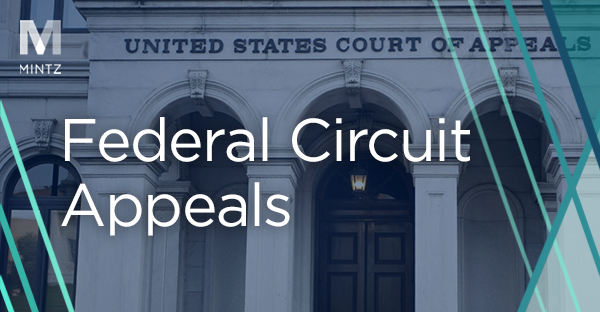
Antitrust
Viewpoints
Filter by:
Pass the Salt: DOJ Requires Stone Canyon to Divest Its Evaporated Salt Business to Obtain Merger Clearance
April 22, 2021 | Blog | By Bruce Sokler, Tinny Song
Earlier this week, Stone Canyon Industry Holdings LLC (“Stone Canyon”) and its portfolio company SCIH Salt Holdings Inc. (“SCIH”) reached a settlement agreement with the Department of Justice (“DOJ”) to resolve its investigation of SCIH’s proposed acquisition of Morton Salt Inc. (“Morton”). Under the terms of the settlement agreement, which is subject to Tunney Act review, Stone Canyon and SCIH are required to divest all assets relating to evaporated salt in order to proceed with the Morton acquisition. This settlement agreement is noteworthy in that the divestiture was of the buyer to divest its own assets in order to proceed with the transaction, and the DOJ and the parties reached agreement without a divestiture buyer identified.
Read more
Staffing Company Criminally Indicted for Targeting School Nurses in Wage-Fixing and No-Poach Scheme
March 31, 2021 | Blog | By Bruce Sokler, Farrah Short
The Department of Justice (“DOJ”) announced yesterday a criminal indictment returned by a federal grand jury in Las Vegas, Nevada charging a health care staffing company and its former manager of entering into and engaging in a conspiracy with a competitor to allocate and fix the wages of employee nurses in violation of Section 1 of the Sherman Act (15 U.S.C. § 1).
Read more
DOJ Reaches Acquisition Settlement with Geisinger, Evangelical; Demonstrates Department’s Willingness to Challenge a Minority Investment
March 8, 2021 | Blog | By Bruce Sokler, Evelyn French
Last week, Geisinger Health (“Geisinger”) and Evangelical Community Hospital (“Evangelical”) reached a settlement agreement with the Department of Justice (“DOJ”), resolving the DOJ’s ongoing litigation challenging Geisinger’s partial acquisition of Evangelical. Notably, the settlement agreement, among other terms, limits Geisinger’s ownership interest in Evangelical to a 7.5% passive investment and prevents Geisinger from exercising any control or influence over Evangelical.
Read more
FTC Abandons Appeal of Philadelphia Hospital Merger, Allowing Jefferson and Einstein to Proceed with Creation of 18-Hospital System
March 2, 2021 | Blog | By Bruce Sokler, Joseph Miller , Robert Kidwell
Back in December, we wrote about a district court ruling rejecting the Federal Trade Comission’s (“FTC”) motion to enjoin the proposed combination of Thomas Jefferson University (“TJU”) and Albert Einstein Healthcare Network (“Einstein”) that would create an 18-hospital system in the Philadelphia area. The FTC and the Pennsylvania Attorney General had alleged the merger would lead to TJU/Einstein controlling at least 60% of the inpatient GAC hospital services market in a portion of Philadelphia. Following the district court decision, the FTC quickly appealed to the Third Circuit Court of Appeals and filed an emergency motion for a stay pending appeal. Days later, a three-judge panel denied the government’s motion without comment.
Read more
Fourth Circuit Affirms District Court’s First-of-Its-Kind Divestiture Order in Private Merger Challenge
February 23, 2021 | Blog | By Bruce Sokler, Tinny Song
On February 18, 2021, the United States Court of Appeals for the Fourth Circuit upheld the divestiture order issued by the U.S. District Court for the Eastern District of Virginia in a private merger challenge brought by Steves and Sons Inc. (“Steves”) against Jeld-Wen Inc. (“Jeld-Wen”) relating to Jeld-Wen’s acquisition of CraftMaster Manufacturing Inc. (“CMI”) in 2012. While divestitures are the government’s preferred remedy when it challenges a merger, this case represents the first instance when this remedy was ordered in a private litigation.
Read more
Body Camera Manufacturer Fails in Bid to Escape FTC Administrative Jurisdiction as Ninth Circuit Shows No Appetite for Judicial Overhaul of Merger Review Procedure
February 2, 2021 | Blog | By Bruce Sokler
The FTC, and antitrust enforcement in general, are having their moment. For example, in early January the Supreme Court heard oral argument in AMG Capital Management v. Federal Trade Commission, a case questioning the FTC’s authority to require defendants to pay restitution for money obtained as the result of illegal activities. In that case, there is significant doubt about whether the Court will uphold the FTC Act’s Section 13(b) provision allowing for the FTC to obtain this equitable relief, and such a ruling would drastically change the way FTC approaches enforcement.
Read more
DOJ Continues its Enforcement Efforts Against Anticompetitive Conduct in Labor Markets, Charges Health Care Company for No-Poach Agreements with First Criminal Indictment
January 12, 2021 | Blog | By Bruce Sokler, Evelyn French
Last week, the Department of Justice (“DOJ”) announced the criminal indictment of Surgical Care Affiliates LLC (“SCA”), an Alabama- and Illinois-based company, which owned and operated outpatient medical centers around the U.S., for its alleged agreements with competitors not to solicit senior-level employees. DOJ has been suggesting since 2006 that it would use the criminal provisions of the antitrust laws against into employee allocation agreements—commonly called no-poach agreements, and DOJ has now followed through on its warnings.
Read more
DOJ Announces Indictment of Former Owner of Health Care Staffing Company for Wage Fixing
December 11, 2020 | Blog | By Bruce Sokler, Evelyn French
Treasury Issues Final Rule Amending CFIUS Mandatory Filing Requirements
September 17, 2020 | Blog | By Robert Kidwell, Tinny Song
Another One Bites the Dust – N.D. Tex. Dismisses Antitrust Claims re FRAND Commitments with Prejudice
September 17, 2020 | Blog | By Michael Renaud, Joseph Miller
In the latest decision addressing antitrust liability for FRAND commitments, Judge Barbara M. G. Lynn of the Northern District of Texas dismissed a complaint from Continental Automotive Systems, Inc. (“Continental”) alleging, inter alia, violations of §§ 1 and 2 of the Sherman Act, and declaratory judgment as to FRAND obligations against Avanci, LLC (“Avanci”) and various members of its patent pool (collectively, “Defendants”).
Read more
DOJ to IEEE: Yes, Injunctive Relief Should Be Available for SEPs, and Stop Saying Otherwise
September 14, 2020 | Blog | By Michael Renaud, James Wodarski, Joseph Miller , Daniel Weinger
Last Thursday, September 10, 2020, the U.S. Department of Justice’s Antitrust Division (“DOJ”) issued an updated Business Review Letter (“2020 Letter”) to the Institute of Electrical Electronics Engineers, Incorporated (“IEEE”) clarifying the DOJ’s views on licensing and enforcement practices related to standard essential patents (“SEPs”).
Read more
Ninth Circuit Reverses FTC Win in FTC v. Qualcomm, Finding No Antitrust Violations from Qualcomm’s Licensing of its Standard-Essential Patents
August 13, 2020 | Blog | By Rich Gervase, Joseph Miller , Michael Renaud, Tinny Song
In a reversal that came as no surprise to many observers, on Tuesday, August 11, 2020, a unanimous panel of the U.S. Court of Appeals for the Ninth Circuit reversed the decision by the U.S. District Court for the Northern District of California in FTC v. Qualcomm and vacated the district court’s worldwide, permanent injunction prohibiting several of Qualcomm Incorporated’s (“Qualcomm”) licensing practices with respect to standard-essential patents (“SEPs”) covering cellular technology.
Read more
DOJ and the FTC Publish Vertical Merger Guidelines
July 13, 2020 | Blog | By Joseph Miller , Bruce Sokler, Robert Kidwell, Evan Moore
Commissioner Chopra Releases Statement on Private Equity Physician Practice Roll-Ups with FTC/DOJ HSR Annual Report
July 10, 2020 | Blog | By Joseph Miller , Robert Kidwell
On Wednesday, an FTC Commissioner used the occasion of a routine report to Congress to send a warning shot to private equity firms, especially those rolling up health care providers. Commissioner Rohit Chopra, an advisor to Senator Elizabeth Warren before he joined the Commission in May 2018, released this statement focusing particular scrutiny on private equity (PE) firms and the practice of acquiring physician groups, especially emergency medicine, anesthesiology, and other services that generate “surprise” out of network charges for otherwise insured patients.
Read more
AbbVie’s Enforcement of its ‘Patent Thicket’ For Humira Under the BPCIA Does Not Provide Cognizable Basis for an Antitrust Violation
June 18, 2020 | Blog | By Rich Gervase, Joseph Miller , Tinny Song
In a recent decision in In Re Humira (Adalimumab) Antitrust Litigation), No. 19-cv-1873, Judge Shah of the Northern District of Illinois dismissed a consolidated class action complaint filed by U.S. purchasers of AbbVie Inc.’s blockbuster biologic drug Humira alleging that AbbVie had prevented manufacturers of competing biosimilar drugs (“biosimilars”) from entering the U.S. market in violation of federal and state antitrust laws.
Read more
FTC Comments on New Medicare Rule in Support of Expanded Telehealth Services
June 4, 2020 | Blog | By Evan Moore, Joseph Miller
On May 29th, the Federal Trade Commission (FTC) submitted a comment to the Centers for Medicare & Medicaid Services (CMS) in support of reducing reimbursement requirements for telehealth services. CMS accepted public comments for its new Interim Final Rule published on April 6, 2020, 85 FR 19230, which changes the Medicare payment regulations to allow for more flexible Medicare service options in response to the COVID-19 pandemic. In addition to supporting CMS’s new Interim Final Rule, FTC’s comment recommends permanent measures and further steps to take. The comment offers a valuable insight into the Commission’s stance on telemedicine in relation to health care competition.
Read more
Antitrust Division Gives Thumbs Up to Pork Farmers’ Collaboration on Hog Euthanasia
May 18, 2020 | Blog | By Bruce Sokler, Evan Moore
FTC Chairman Discusses Coronavirus Scams, Privacy Concerns in Teleconference with Lawmakers
May 12, 2020 | Blog | By Bruce Sokler, Evan Moore
Explore Other Viewpoints:
- Antitrust
- Appellate
- Arbitration, Mediation & Alternate Dispute Resolution
- Artificial Intelligence
- Awards
- Bankruptcy & Restructuring
- California Land Use
- Class Action
- Complex Commercial Litigation
- Construction
- Consumer Product Safety
- Cross-Border Asset Recovery
- Debt Financing
- Direct Investing (M&A)
- Diversity
- EB-5 Financing
- Education & Nonprofits
- Employment
- Energy & Sustainability
- Environmental Enforcement Defense
- Environmental Law
- FDA Regulatory
- Federal Circuit Appeals
- Financial Institution Litigation
- Government Law
- Growth Equity
- Health Care
- Health Care Compliance, Fraud and Abuse, & Regulatory Counseling
- Health Care Enforcement & Investigations
- Health Care Transactions
- Health Information Privacy & Security
- IP Due Diligence
- IPRs & Other Post Grant Proceedings
- Immigration
- Insolvency & Creditor Rights Litigation
- Institutional Investor Class Action Recovery
- Insurance & Financial Services
- Insurance Consulting & Risk Management
- Insurance and Reinsurance Problem-Solving & Dispute Resolution
- Intellectual Property
- Investment Funds
- Israel
- Licensing & Technology Transactions
- Life Sciences
- Litigation & Investigations
- M&A Litigation
- ML Strategies
- Medicare, Medicaid and Commercial Coverage & Reimbursement
- Mergers & Acquisitions
- Patent Litigation
- Patent Prosecution & Strategic Counseling
- Pharmacy Benefits and PBM Contracting
- Portfolio Companies
- Privacy & Cybersecurity
- Private Client
- Private Equity
- Pro Bono
- Products Liability & Complex Tort
- Projects & Infrastructure
- Public Finance
- Real Estate Litigation
- Real Estate Transactions
- Real Estate, Construction & Infrastructure
- Retail & Consumer Products
- Securities & Capital Markets
- Securities Litigation
- Special Purpose Acquisition Company (SPACs)
- Sports & Entertainment
- Strategic IP Monetization & Licensing
- Tax
- Technology
- Technology, Communications & Media
- Technology, Communications & Media Litigation
- Trade Secrets
- Trademark & Copyright
- Trademark Litigation
- Value-Based Care
- Venture Capital & Emerging Companies
- White Collar Defense & Government Investigations
- Women's Health and Technology





